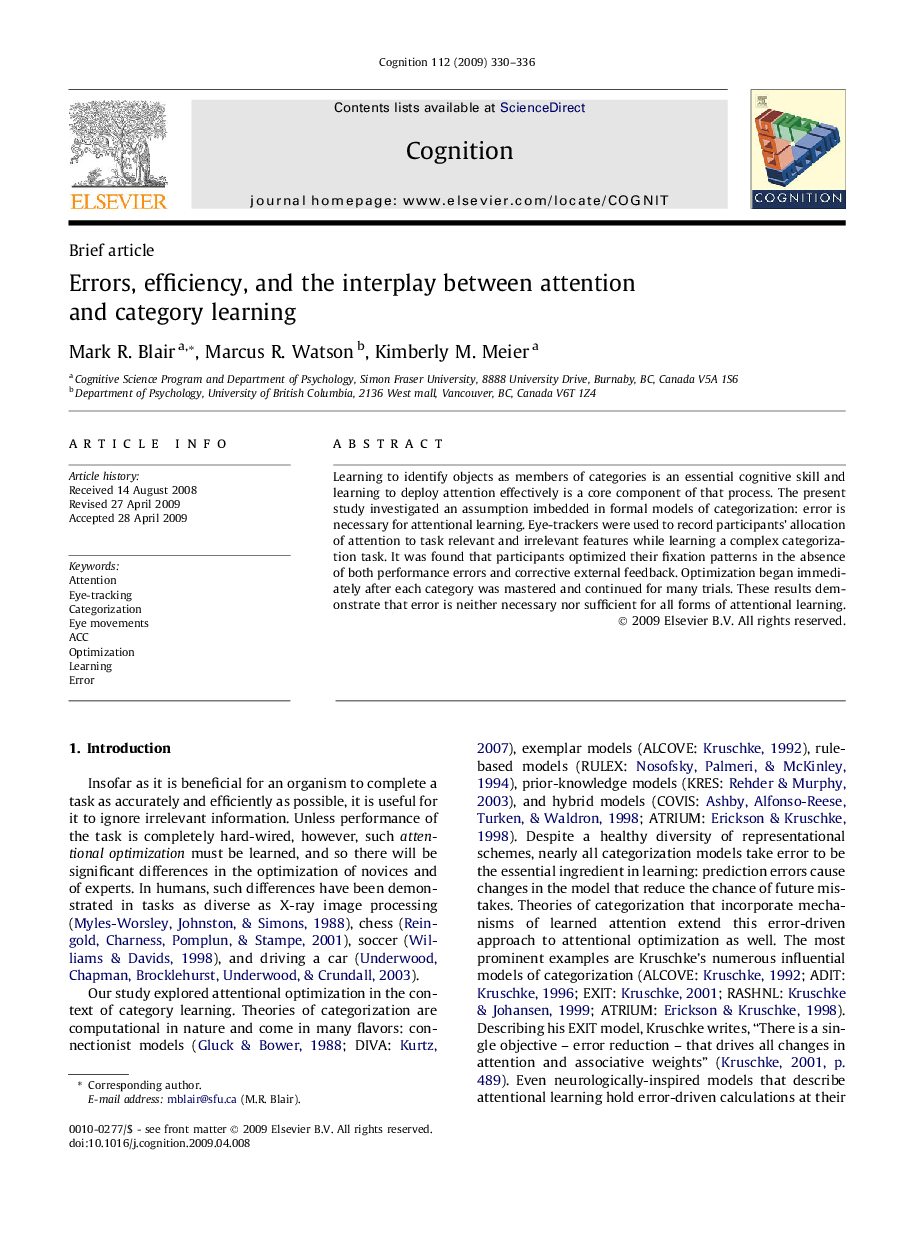| Article ID | Journal | Published Year | Pages | File Type |
|---|---|---|---|---|
| 926648 | Cognition | 2009 | 7 Pages |
Learning to identify objects as members of categories is an essential cognitive skill and learning to deploy attention effectively is a core component of that process. The present study investigated an assumption imbedded in formal models of categorization: error is necessary for attentional learning. Eye-trackers were used to record participants’ allocation of attention to task relevant and irrelevant features while learning a complex categorization task. It was found that participants optimized their fixation patterns in the absence of both performance errors and corrective external feedback. Optimization began immediately after each category was mastered and continued for many trials. These results demonstrate that error is neither necessary nor sufficient for all forms of attentional learning.
